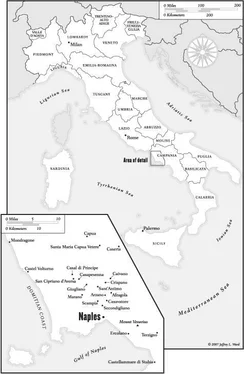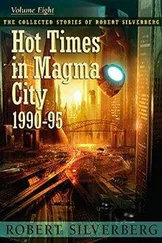Roberto Saviano - Gomorrah - A Personal Journey into the Violent International Empire of Naples’ Organized Crime System
Здесь есть возможность читать онлайн «Roberto Saviano - Gomorrah - A Personal Journey into the Violent International Empire of Naples’ Organized Crime System» весь текст электронной книги совершенно бесплатно (целиком полную версию без сокращений). В некоторых случаях можно слушать аудио, скачать через торрент в формате fb2 и присутствует краткое содержание. Жанр: Старинная литература, на английском языке. Описание произведения, (предисловие) а так же отзывы посетителей доступны на портале библиотеки ЛибКат.
- Название:Gomorrah: A Personal Journey into the Violent International Empire of Naples’ Organized Crime System
- Автор:
- Жанр:
- Год:неизвестен
- ISBN:нет данных
- Рейтинг книги:5 / 5. Голосов: 1
-
Избранное:Добавить в избранное
- Отзывы:
-
Ваша оценка:
- 100
- 1
- 2
- 3
- 4
- 5
Gomorrah: A Personal Journey into the Violent International Empire of Naples’ Organized Crime System: краткое содержание, описание и аннотация
Предлагаем к чтению аннотацию, описание, краткое содержание или предисловие (зависит от того, что написал сам автор книги «Gomorrah: A Personal Journey into the Violent International Empire of Naples’ Organized Crime System»). Если вы не нашли необходимую информацию о книге — напишите в комментариях, мы постараемся отыскать её.
Gomorrah: A Personal Journey into the Violent International Empire of Naples’ Organized Crime System — читать онлайн бесплатно полную книгу (весь текст) целиком
Ниже представлен текст книги, разбитый по страницам. Система сохранения места последней прочитанной страницы, позволяет с удобством читать онлайн бесплатно книгу «Gomorrah: A Personal Journey into the Violent International Empire of Naples’ Organized Crime System», без необходимости каждый раз заново искать на чём Вы остановились. Поставьте закладку, и сможете в любой момент перейти на страницу, на которой закончили чтение.
Интервал:
Закладка:

I went to Emanuele’s funeral. In certain spots on the globe, fifteen is merely a number. In this slum neighborhood, dying at fifteen is more like fulfilling a death sentence than being deprived of life. The church was filled with grim-faced kids, and every now and then they’d let out a moan. Outside, a small chorus was even chanting, “He’s still with us, he’ll always be with us …” what soccer fanatics shout when some old glory retires his number. It was as if they were at the stadium, but the only chants were ones of rage. The plainclothesmen did their best to keep out of the aisles. Everyone had recognized them but there was no room for a skirmish. I’d spotted them right away; or rather they’d spotted me, not finding any trace of my face in their mental archives. As if attracted by my sullenness, one of them came up to me and said, “They’re all doomed here. Drugs, stealing, dealing in stolen goods, holdups … some are even streetwalkers. Not one of them is clean. The more of them who die here, the better it is for everyone.”
Words that deserve a punch or a head butt in the nose. But everyone was really thinking the same thing. And maybe they had a point. I looked at them one by one, those kids who’ll do life for stealing 200 euros—the dregs, stand-ins, pushers. Not one of them over twenty. Padre Mauro, the priest performing Emanuele’s funeral, knew whom he was burying. He also knew the other kids were hardly the picture of innocence.
“This is not a hero who has died today …”
He didn’t hold his hands open as priests do when they read the parables on Sunday, but instead clenched his fists. And there was no note of homily in his voice, which was strangely hoarse, as if he’d been talking too long. He spoke with anger—there was no light punishment for this creature, no delegating anything.
He seemed like one of those priests during the guerrilla uprisings in El Salvador, when they’d finally had enough of performing funerals for murder victims, when they stopped having pity and started shouting. But no one knew Romero here. Padre Mauro had unusual energy. “For all the responsibility we can assign to Emanuele, the fact remains that he was fifteen years old. At that age the sons of families born in other parts of Italy are going to the pool, taking dance lessons. It’s not like that here. God the Father will take into consideration the fact that the mistake was made by a fifteen-year-old boy. If in the south of Italy fifteen means you’re old enough to work, to decide to steal, to kill and be killed, it also means you’re old enough to take responsibility for certain things.”
He inhaled deeply the foul air inside the church. “But fifteen years are few enough that they let us see more clearly what’s behind them, and they require us to apportion the responsibility. Fifteen is an age that knocks at the conscience of those who merely play at legality, work, and responsibility. An age that doesn’t knock gently, but claws with its nails.”
The priest finished the homily. No one was completely sure what he really meant or who was to blame. The kids got all riled up. Four men carried the casket out of the church, but all of a sudden it lifted off their shoulders and floated above the crowd, swaying on a sea of hands, like a rock star who catapults from the stage into his fans. A bunch of motorcyclists pulled up around the hearse waiting to take Manù to the cemetery. They revved their engines and clamped down on the brakes: a chorus of burnouts for Emanuele’s last race. Their tires squealing and mufflers howling, it was as if they wanted to escort him all the way to the hereafter. Thick smoke and the stench of gas filled the air, permeating everyone’s clothes. I went in to the sacristy; I wanted to talk to the priest who’d uttered such fiery words. A woman got there before me. She wanted to tell him that the boy had gone looking for trouble, that his family hadn’t taught him anything. Then she confessed proudly, “My grandchildren would never have committed robbery, even though they’re unemployed … But what did that boy learn?” she continued nervously. “Anything?”
The priest looked at the floor. He was wearing a tracksuit. He didn’t try to respond, didn’t even look her in the face. He just kept staring at his sneakers as he whispered, “The fact is that the only thing you learn here is how to die.”
“Excuse me, Padre?”
“Nothing, signora, nothing.”
But not everyone is underground here. Not everyone has ended up in the quagmire of defeat. At least not yet. Some successful factories are still strong enough to compete with the Chinese because they work for big designer names. By delivering speed and quality—extremely high quality—they still hold the monopoly on beauty for top-level garments. “Made in Italy” is made here. Caivano, Sant’ Antimo, Arzano, and all across Las Vegas, Campania. “The face of Italy in the world” wears fabric draped over the bare head of the Naples suburbs. The brand names don’t dare risk sending everything East, contracting out to Asia. Factories here are crowded into stairwells, on the ground floors of row houses, in sheds on the outskirts of these outlying towns. Lined up one behind the other, staring at the back of the person in front of them, the workers sew cloth, cut leather, and assemble shoes. A garment worker puts in about ten hours a day, bringing home from 500 to 900 euros a month. Overtime usually pays well, as much as 15 euros an hour more than the regular wage. Factories rarely have more than ten employees. There’s almost always a television or radio so the workers can listen to music, maybe even hum along. But during crunch times the only noise is the march of needles. More than half the employees are women; they’re skilled workers, born staring at a sewing machine. Officially these factories don’t exist, and neither do the employees. If the same work were done legally, prices would go up and there’d be no more market—which means the work would disappear from Italy. The businessmen around here know this logic by heart. There’s usually no rancor or resentment between factory workers and owners; class conflict here is as soft as a soggy cookie. Often the owner is a former worker, and he puts in the same hours as his employees, in the same room, at the same bench. When he makes a mistake, he pays for it out of his own pocket, in mortgages or loans. His authority is paternalistic. You have to fight for a day off or a few cents’ raise. There’s no contract, no bureaucracy. It’s all head to head, and any concessions or benefits are individually negotiated. The owner and his family live above the factory. His daughters often babysit his employees’ children, and his mother becomes their de facto grandmother, so that workers’ and owner’s children grow up together. This communal existence acts out the horizontal dream of post-Fordism:* workers and managers eat together, socialize with each other, and are made to feel they’re all part of the same community.
No one acts ashamed here. They know they’re doing top-quality work, and that they’re being paid a pittance. But you can’t have one without the other. You work to get what you need and you do it as best you can, so that no one will find any reason to fire you. No safety net, just cause, sick leave, or vacation days. It’s up to you to negotiate your rights, to plead for time off. But there’s nothing to complain about. Everything is just as it should be. Here there’s only a body, a skill, a machine, and a salary. No one knows the exact number of clandestine workers in these parts, or how many legal employees are forced to sign a monthly pay slip for sums they never receive.

Интервал:
Закладка:
Похожие книги на «Gomorrah: A Personal Journey into the Violent International Empire of Naples’ Organized Crime System»
Представляем Вашему вниманию похожие книги на «Gomorrah: A Personal Journey into the Violent International Empire of Naples’ Organized Crime System» списком для выбора. Мы отобрали схожую по названию и смыслу литературу в надежде предоставить читателям больше вариантов отыскать новые, интересные, ещё непрочитанные произведения.
Обсуждение, отзывы о книге «Gomorrah: A Personal Journey into the Violent International Empire of Naples’ Organized Crime System» и просто собственные мнения читателей. Оставьте ваши комментарии, напишите, что Вы думаете о произведении, его смысле или главных героях. Укажите что конкретно понравилось, а что нет, и почему Вы так считаете.












